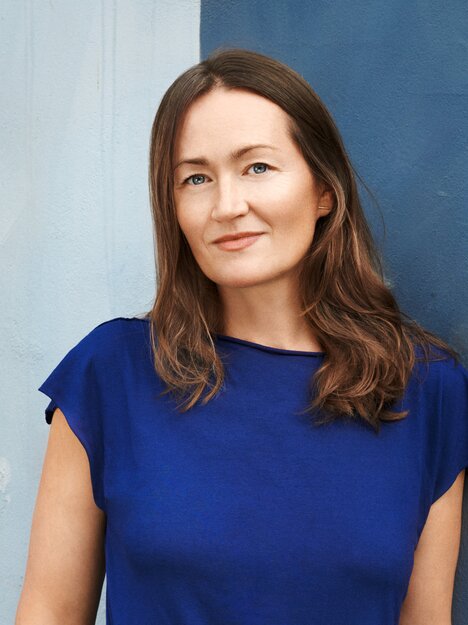And When I Heard the German Language
Much has already been said about Germany, and much of it certainly needed to be said. But who or what is Germany?

And how might Germany respond if, with great sincerity, I flung everything in its face that I think most urgently needs to be said? Does Germany have a voice with which it could answer me? And would that voice caw or roar, purr or hum, speak in chorus or sing some kind of eerily beautiful cacophony?
Im traurigen Monat November war’s,
Die Tage wurden trüber,
Der Wind riss von den Bäumen das Laub,
Da reist ich nach Deutschland hinüber.
’Twas the sorrowful month of November,
Ever gloomier were the days,
The wind tore the leaves from the trees,
As to Germany I made my way.
This is how Heinrich Heine begins his Deutschland. Ein Wintermärchen – Germany. A Winter’s Tale – and this is how I made my way there too, from the East, holding my parents’ hands. I should say that I can no longer be sure what time of year it was, because my journey was so long ago. But I’m sure of the place: it was the reception camp in Berlin Marienfelde, a destination for so many fleeing to West Germany at the time, each with their stories and reasons – and then a refugee registration number.
‘And when I heard the German language / Strange feelings arose within me’ – ‘Und als ich die deutsche Sprache vernahm / Da ward mir seltsam zumute’ Heine says a few lines further on. Though I know he meant something completely different, I can say: it was like that for me too, strange feelings arose within me. I acquired the German language and Germany crawled inside me. I was inducted into the secrets of Sunday coffee and cake at my friend’s family table. I internalised a Protestant sense of duty at my Catholic convent school. And I learned something else besides: Germany has no decent superstitions. Everywhere you go, people hug one another over thresholds, whistle a merry tune or even boast about their own health – acts that people from other countries know full well can only bring bad luck.
So is this what needed to be said about Germany? Hasn’t what always needed to be said always already been said? Heine is critical of its ‘wooden pedantic people’, its ‘hölzern pedantische Volk’: ‘The same right angles / In every movement, and in every face / The frozen conceit.’ – ‘Noch immer ein rechter Winkel / In jeder Bewegung, und im Gesicht / Der eingefrorene Dünkel.’ Anyone looking for lively modern examples to prove these sentences – originally written in January 1844 – will be successful. And anyone trying to prove the opposite will be equally successful. And that’s why I’d rather stick to a completely different line from Heine’s A Winter’s Tale: ‘My head is a chirruping bird’s nest’ – ‘Mein Kopf ist ein zwitscherndes Vogelnest’.
About the author
Katerina Poladjan was born in Moscow, grew up in Rome and Vienna and now lives in Germany where she works as a playwright and essayist. Her prose debut In einer Nacht, woanders was published in 2011. For Hier sind Löwen (2019) she was nominated for the German Book Prize and received the Nelly Sachs Prize in 2021. Her most recent novel Zukunftsmusik (2022) was awarded the Chamisso Prize and the Rheingau Literature Prize.
